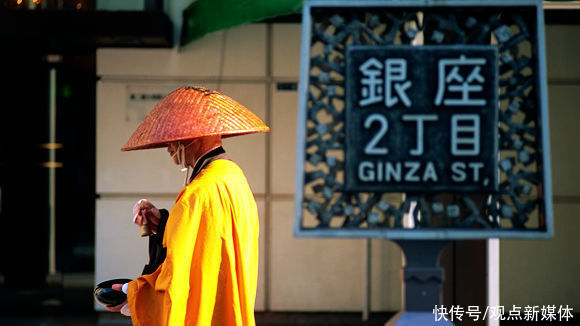
ViewpointLily went on a tour of downtown New York and walked into a hotel near Times Square. The billboard was a blue-violet lighted “yotel”.
After spending about 2,000 yuan to check in on the self-service machine, a robotic arm about 3 meters high in the transparent glass window is storing luggage, tipping and arriving at the room, the robot waiter Youbo The yobot will deliver the required food and beverages.
Laying on the electric smart bed for a while, Lily felt that the room was small and walked to the common rest area. Young people like her were reading, chatting, and working. After playing for a while, she thought that maybe she could go to the gym and bar in the hotel at night.
Tomorrow, she will only need a 5-minute drive to Times Square, and another two hours to New Jersey, which is very convenient.
This is an important product line of the British brand Yotel Group. The yotel hotel focuses on micro-luxury living in the city center and has a unique robot concierge service.
On July 25th, the official website of the yotel group revealed that a yotel hotel will be opened in “Ginza”, one of the most desirable and dynamic communities in Tokyo, Japan, a 15-minute walk away An important transportation hub, Tokyo Station.
This is yotel’s first store in Japan and the fifth store in Asia, which will open in 2024.
Small Space
In 2020, Lily was waiting for a connecting flight at Istanbul Airport, Turkey. Because the waiting time for the next flight was too long, she walked into an airport Hotel – yotelair, which is also the largest airport hotel in Europe, with 456 rooms.
Under the same blue-purple strip light, she completed the check-in on the self-service machine, and spent about 670 yuan to rest on the electric smart bed for 4 hours. In addition to the bed and mini toilet, to move around, you can only go out of the guest room to the public space.
Leave the hotel after a good sleep, go out to the departure floor of the airport, and check in smoothly.
In 2022, through real-time inquiry through tourism and accommodation agencies, it will cost about 1,900 yuan to stay for a whole night. Because the reservation can be started from 4 hours, the occupancy rate may exceed 100%.
This is another product line of the Yotel Group, usually located in airports and busy transport hubs, and people who need a break when connecting flights will think of these types of hotels.
Small space, intelligent, comfortable and relatively inexpensive, this is the evaluation label given by consumers to yotel hotels. This is also the check-in experience that founder Simon Woodroff wanted to provide to passengers after a flight in 2006.
At that time, Simon was promoted to first class on the plane, and he slept well in the small space in the cabin. He felt that such a limited space, through ingenious design, can also bring advanced and comfortable feeling.
Later, he and his team hired a professional cabin designer to build the first imitation cabin room, which can be self-checked. The room type is innovative, and it combines many black technologies such as wireless charging and electric smart beds.
In 2007, the first yotel opened in London, and then more yotel hotels were deployed around the world. Up to now, the official website shows that there are 22 places that can be accessed.
In 2017, starwood, one of the world’s largest hotel groups, invested US$250 million to become a strategic partner with yotel.
Back to Japan
This cabin design also draws on the Japanese “capsule cabin” concept.
In 1979, the famous Japanese architect Kisho Kurokawa designed the building from the exterior to the interior as stacked cabins. This greatly improved the efficiency of space use in Japan, where real estate developed rapidly and land prices were high in the 1980s.
Japan has a huge demand for cheap rest places. “Part-time workers” work overtime and go back late, and there is no tram. Taxi is very expensive, so they need a clean and cheap place to temporarily rest for a night.
It is understood that according to the Tokyo taxi standard pricing method, the starting fare is generally 580 yen (32.3rmb), 600 yen (33.5rmb), 660 yen (36.8rmb) according to the size of the model. There is a 30% surcharge from 23:00 in the evening to 05:00 in the morning. In other words, a taxi of more than 50 yuan can run more than ten kilometers in Beijing, but can only run 3 kilometers in Tokyo.
The average hotel price in Shinjuku, Tokyo is about 1,000 RMB a night, but a capsule hotel can be as cheap as 200 RMB a night. Therefore, if the average price of a hotel in Beijing is 300 yuan a night, a capsule hotel will charge a maximum of 80 yuan.
A taxi is not as good as accommodation. For young people in Japan, a cheap, comfortable and convenient place to rest is very important. From this point of view, yotel’s cheap and efficient genes seem to be a good fit for Japan.
But yotel also pays attention to intelligence and comfortable experience. Judging from the current evaluation of consumers, the price is not low, but relatively low.
Although the space utilization efficiency is high, it is located in a key and popular area, which may need to be balanced in terms of profitability.
Yotel is currently opening a new hotel in Tokyo, with 244 rooms, which also provides standard robotic concierge services, electric smart beds, and more.
YOTEL CEO Hubert Viriot believes that as the flagship product of the group, YOTEL Tokyo will be a stepping stone to promote the brand in Japan, a market of strategic importance for YOTEL.
Business Journal | Tradition is being changed, business development history in change and integration.